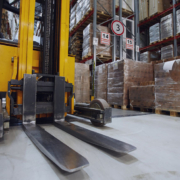The great Android Migration has consumed modernization strategies for the past years ever since Microsoft announced discontinued support for Windows CE-based mobile devices. Those seeking to protect data can no longer rely on Windows Mobile for their handheld devices. However, while Android is dominating the mobility frontier, Windows OS has yet to become completely obsolete. In spite of Android’s seamless adaptability, Microsoft still possesses enterprise familiarity as it continues to power a vast majority of rugged laptops and tablets. Apart from small-scale handheld devices such as mobile computers and enterprise smartphones, Windows 10 OS can still be beneficial since it enables…
- Seamless connectivity to peripheral devices – Because most enterprise devices have been accustomed to running on Windows’ OS, peripheral hardware such as ring scanners, mobile printers, and headsets from varying manufacturers can quickly connect to your Windows device without extensive lag times.
- Open ecosystem for non-traditional software – As the oldest supporting operating system in enterprise, Windows has built a long history of accommodating software updates and applications previously designed for desktops onto laptop interfaces. This allows field workers to quickly navigate through data while on the road without having to readapt to a new interface, lowering training times and simplifying workflows.
- Enterprise-ready security on the field – Unlike Windows CE, tablets running on Windows 10 can still count on recurring enterprise security and support from Microsoft. This means teams can rely on seamless ease-of-use along with reliable data security for sensitive transactions and financial information.
What to look for in your Windows Tablet
As with previous enterprise hardware recommendation, selecting a Windows tablet requires businesses to note the following characteristics:
- Portability and ergonomics since devices will most likely be used by your most on-the-move workers.
- Flexible connectivity options to accommodate field teams working far beyond standard cellular coverage.
- Glove friendly touchscreen usage that safeguards usability in colder and outdoor environments.
- Streamlined functionalities such as automated data capture and data sharing within a protected platform.
- Simplistic device management to guarantee maximum uptime even when devices are far from IT support teams.
See how Zebra’s L10 Rugged Tablet goes beyond these standards while leveraging the adaptability of Windows 10. When it comes to effective modernization, there is no such thing as a one-size-fits-all system. That’s why we continue to recommend businesses to carefully plan modernization strategies with a specialized team to best target unique optimization opportunities. In doing so, companies can expect to create a scalable modernization strategy that embraces change while leveraging familiarity for seamless integration.









